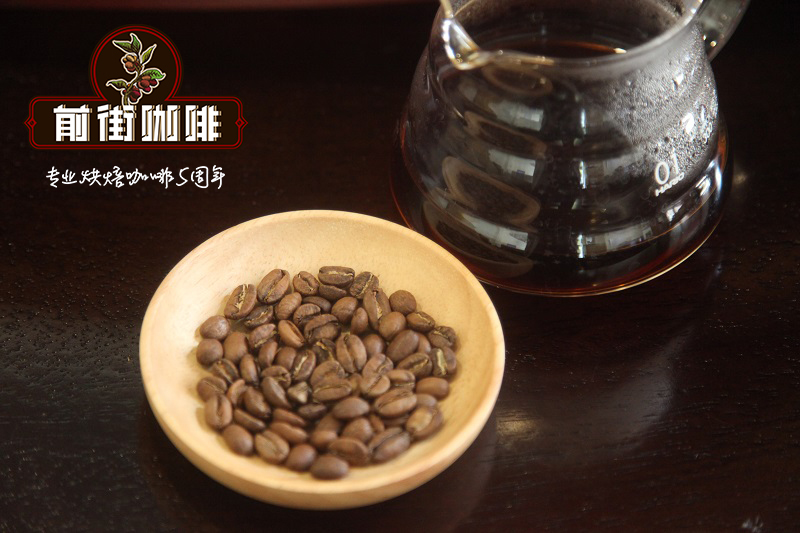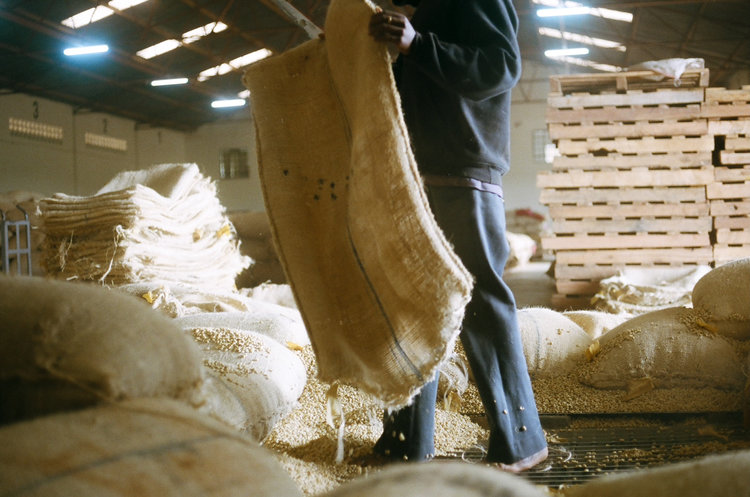Kenyan coffee beans | History of Kenyan coffee the Kenyan coffee market

Professional coffee knowledge exchange more coffee bean information please follow the coffee workshop (Wechat official account cafe_style)
Kenyan Coffee History and Market
Despite its proximity to Ethiopia, coffee cultivation did not begin until the end of the 19th century, with some sources suggesting that it was a Roman Catholic priest (Father Holy Spirit), while others believed that coffee was introduced into Kenya through British colonists.
Kenyan coffee auctions were originally managed by dealers in London, meaning farmers had to wait six months before they could get the money. The fact that coffee is dried in London further consumes their returns.
In 1926, in order to represent the interests of coffee farmers, the Coffee growers Union was established, which actually led to the establishment of cooperatives and marketing systems, and producers had a voice for the first time. In 1931, the United States established the first Kenyan-based auction system, but it was not until 1937 that the status of traders in London declined. This year, the Nairobi Coffee Exchange opened under the control of the Kenya Coffee Commission (KPCU).
Since KPCU opened the Nairobi Coffee Exchange, the auction system has been the main window for the sale of Kenyan coffee. Compared with other coffee producing areas, the price of this system is relatively high. Given the dominance of the system, professional buyers have become accustomed to buying coffee from coffee auctions in Kenya and then promoting their products in Kenya through cooperatives / washing stations. This means that in Kenya, coffee purchases are more "spot purchases" made by importers and exporters at auctions than relationships.
Aligning buyers with specific co-ops has proved both challenging and frustrating because of corruption, mismanagement and quality fluctuations. Over the past few years, CCS has been exploring procurement at the real estate level, with some farmers even organizing themselves into "micro-cooperatives" (±10 farmers) as a means of building real partnerships with buyers more firmly.
We hope to be able to provide our barbecues with more consistent partners of the same quality than in Kenya, as we have in other origins, and have seen some success in a small real estate farmer: the owner of John Njoroge Kiambu and Kiriani Manor, who has produced huge coffee to us since 2014.

Important Notice :
前街咖啡 FrontStreet Coffee has moved to new addredd:
FrontStreet Coffee Address: 315,Donghua East Road,GuangZhou
Tel:020 38364473
- Prev

Guatemalan Coffee | History of Guatemalan Coffee the Guatemalan coffee market
For more information on coffee beans, please follow the coffee workshop (Wechat official account cafe_style) the history and market of Guatemalan coffee. Coffee cultivation began in Guatemala around 1850, and by the end of the 19th century, as a result of reforms led by then President Justo Rufino Barrios (Justo Rufino Barrios), coffee cultivation became the country's main export.
- Next

What are the hand flushing techniques? What are the advantages and disadvantages of the five methods of making coffee by hand?
Professional coffee knowledge exchange more coffee bean information please follow the coffee workshop (Wechat official account cafe_style) volcanic flushing method originated in Japan, more suitable for deep-roasted coffee beans. It uses the carbon dioxide contained in beans, and after many times of steaming, the coffee powder bulges like a volcanic eruption, so deep-baked beans are more suitable because they contain more hydrogen peroxide.
Related
- Beginners will see the "Coffee pull flower" guide!
- What is the difference between ice blog purified milk and ordinary milk coffee?
- Why is the Philippines the largest producer of crops in Liberia?
- For coffee extraction, should the fine powder be retained?
- How does extracted espresso fill pressed powder? How much strength does it take to press the powder?
- How to make jasmine cold extract coffee? Is the jasmine + latte good?
- Will this little toy really make the coffee taste better? How does Lily Drip affect coffee extraction?
- Will the action of slapping the filter cup also affect coffee extraction?
- What's the difference between powder-to-water ratio and powder-to-liquid ratio?
- What is the Ethiopian local species? What does it have to do with Heirloom native species?

